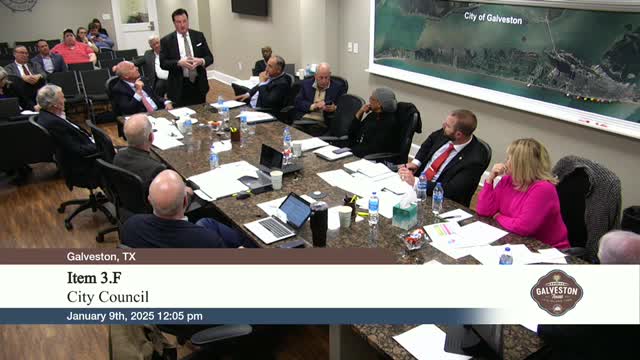County sues over cruise‑terminal taxes; EPA and procurement issues also on joint workshop agenda
Get AI-powered insights, summaries, and transcripts
Subscribe
Summary
Galveston County and appraisal district litigation over whether cruise-terminal property should be taxed is pending; port and city officials also reported an EPA reporting matter and said procurement policy questions will be handled separately.
Legal issues involving port property and operations figured prominently in the joint workshop.
Tax litigation: Port legal counsel and trustees described two pending lawsuits concerning tax treatment of cruise-terminal property. One suit, described by counsel, alleges the cruise terminal owner (a terminal operating entity) should be taxed for tax year 2022; an appraisal review and administrative process had already generated a refund, and county taxing units subsequently filed their challenge, which now is in court. A second, broader suit challenges whether Cruise Terminal 10 is exempt public property and, if not, whether its value should be placed on the tax rolls. Counsel explained that if the court were to find the property taxable, collection consequences could affect port revenues and have downstream budgetary effects (and that, under current school‑funding rules, some additional revenue could go to the state rather than local schools).
EPA reporting matter: Port counsel said the Environmental Protection Agency had been in discussions with the port about hazardous‑waste reporting related to city‑owned property. Counsel previously had planned a joint city‑port approach; counsel reported that EPA subsequently agreed the city did not need to be a party to the matter and that the port would proceed in discussions with EPA.
Why it matters: A court ruling that taxable cruise-terminal status applies could have material revenue consequences for the port and city. Trustees said they had filed motions in court and that the litigation is pending; they asked both boards to stay informed as cases proceed.
Next steps: Port counsel said motions and filings are pending in the litigation and that staff will coordinate with the city attorney on confidential updates where appropriate; trustees and council members asked for a mechanism to keep council informed about material pending lawsuits, subject to confidentiality rules and counsel’s guidance.
